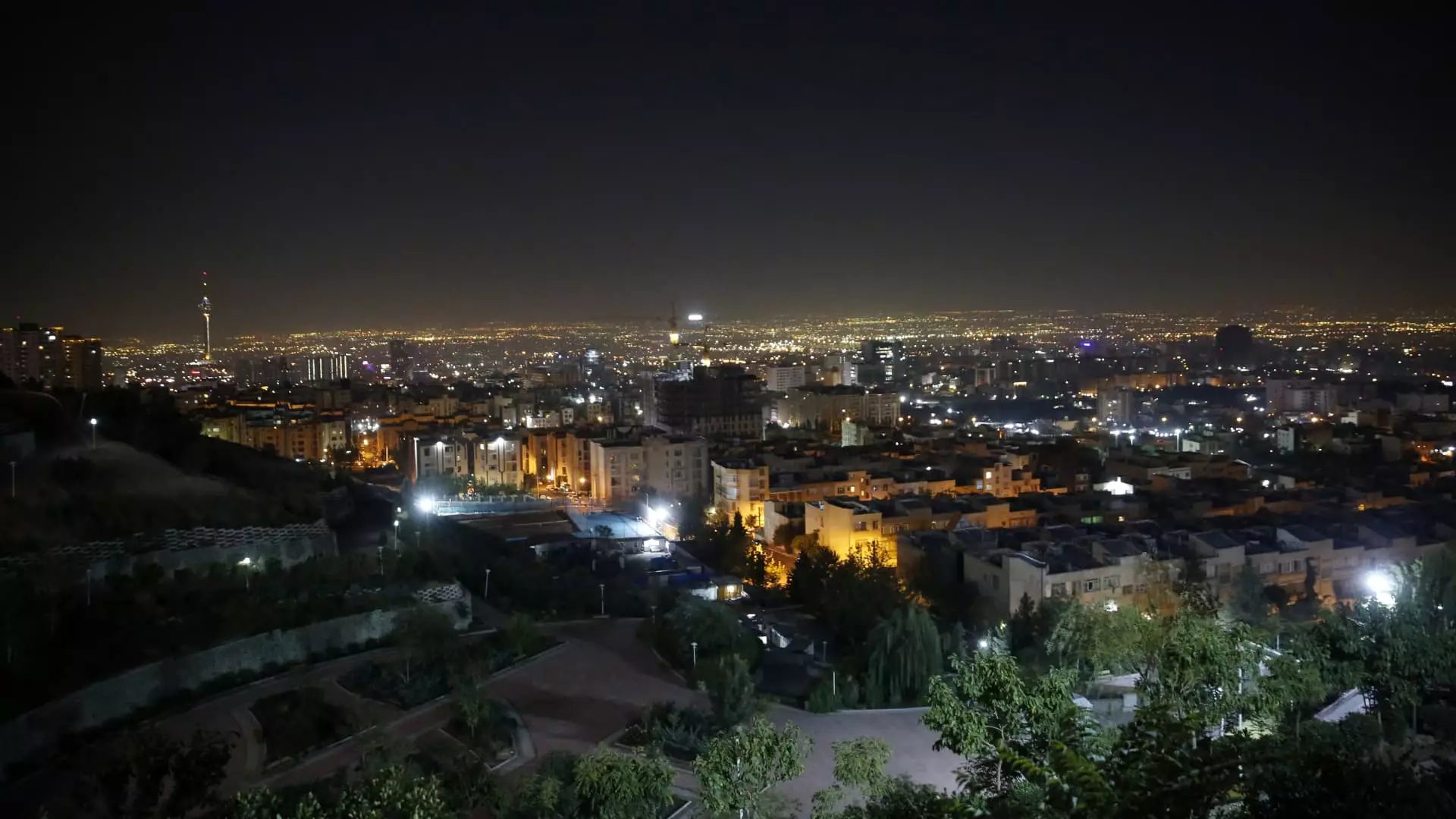The longstanding animosity between Israel and Iran has surged into a new phase of hostilities, particularly following recent incidents that have incited both military and diplomatic urgency in the region. On a recent Saturday, Israeli forces targeted military installations in Iran, marking a significant moment in an ongoing cycle of retaliation that has characterized relations since the beginning of October 2023. This attack follows a previous Iranian missile strike that left one individual dead in the Israeli-occupied West Bank, escalating fears of a wider regional conflict. The situation is exacerbated by the ongoing violence in Gaza and Lebanon, regions where clashes have intensified to dangerous levels.
The Israeli military executed a series of airstrikes, reportedly involving several waves of jet sorties aimed at missile production facilities and other military assets. This operation, albeit significant, conspicuously avoided Iran’s critical energy and nuclear infrastructure, suggesting a measured approach intended to mitigate the risk of widespread escalation despite mounting tensions. While these strikes resulted in limited damage, Iranian forces claimed to have successfully defended against many incoming attacks, indicating the resilience of Iran’s military defenses. The presence of casualties—two Iranian soldiers—highlights the human cost of such clashes, as both nations brace for potential retaliation.
In the wake of Israel’s military actions, the geopolitical atmosphere has become increasingly charged. The United States has called for restraint from both parties, reflecting its vested interest in regional stability. President Biden has made clear that Washington will not support aggressive action against Iran’s nuclear sites, thereby pinpointing boundaries for Israeli military operations. This cautious stance is crucial as the U.S. has historically been a primary ally of Israel, and the delicate balance of power in the Middle East hinges on these alliances.
Moreover, regional responses to the strikes were immediate and illuminating. Nations such as Saudi Arabia, who have seen recent thawing in ties with Iran, condemned Israel’s actions as violations of sovereignty. Such reactions underline the complexity of Middle Eastern diplomacy, where allegiances are fluid, and actions taken by one nation can reverberate throughout the region.
Iran’s reaction to the Israeli air strikes pivoted on the promise of a “proportional reaction,” a rhetoric that underscores the potential for retaliatory strikes. Iranian officials have reiterated their commitment to responding to foreign aggression, indicating that any misstep by Israel could lead to further military engagements. Iranian state media showcased footage of citizens at Tehran’s Mehrabad Airport, seemingly to project a facade of normalcy amidst moments of tension, meanwhile reports of blasts in military districts confirm the reality of the underlying conflict.
Amidst these developments, observers are closely monitoring Iran’s potential next steps. The international community, particularly nations with strategic interests in maintaining peace, are poised to react depending on Iran’s decisions following the strikes. If Iran opts for an aggressive retaliation, the geopolitical landscape of the Middle East could shift dramatically, pulling in additional stakeholders.
The ramifications of these airstrikes extend beyond just Israel and Iran, as the implications of conflict have staggered effects on neighboring nations and associated alliances. With ongoing military operations in Lebanon against Hezbollah and heightened tensions on the borders, the situation remains precarious. Reports of simultaneous air strikes in Syria suggest that Israel’s military strategy encompasses a wider regional outlook, aiming to curtail Iranian influence across the Levant.
As negotiations for a ceasefire in Gaza resume, the interplay between military action and diplomatic efforts becomes increasingly complex. Any failure to achieve a peaceful resolution could further incite regional instability, leading to broader confrontations that engage multiple nations.
As tensions ripple throughout the region, the international community must remain vigilant to avert an escalation of violence. A delicate balance between military readiness and diplomatic engagement appears essential to defuse rising hostilities. While Israel’s targeted strikes signal a clear stance against perceived threats, the subsequent reactions from Iran will critically influence the next phase of this conflict—one that calls for an urgent reevaluation of strategies both on the ground and at the negotiating table. As the situation develops, it becomes increasingly imperative for all parties involved to seek paths towards de-escalation, prioritizing stability for the sake of regional security and the overarching need for peace.


Leave a Reply